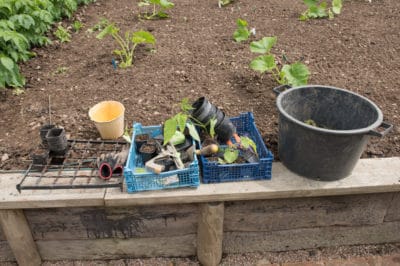What is Winter Squash?
Winter squash is a type of squash with a thick rind that protects the flesh inside from rot, which makes it ideal for winter storage. Unlike summer squash such as zucchini, winter varieties have a long growing season, and you do not harvest them until most other crops have been picked.
Some common varieties of winter squash include:
- Butternut, which is a pale orange or light brown, with a large, pear-shaped form.
- Acorn, which is dark green with bright orange flesh.
- Delicata, ranging from small green and yellow ones to large orange ones.
- Hubbard, with a thick greenish-gray shell and sweet flesh.
When is the Best Time to Plant Winter Squash?
Winter squash seeds will not germinate in soil that is less than 65°F (18°C), so do not plant them just because the weather has started to warm up. Instead, wait until about two weeks after the last frost date for your region. If you are not sure in which growing area you live, your local nursery should be happy to supply that information to you.
Tip: While some gardeners may be able to accurately test the soil temperature by feel alone, use a soil thermometer for the best results.
How Long Does it Take Winter Squash to Grow?
Depending on the variety, winter squash can take anywhere from 80-110 days, depending on the variety chosen. For example, spaghetti squash ripens in approximately 90 days, while Hubbard squash requires a full 110 plus days to fully mature.
When planting any winter squash, be sure to plan for the longer growing requirements. Although squash typically fares better when the seeds are planted directly into the ground, you can also start the seeds indoors about 4-6 weeks before the last frost date. Doing so gives the seeds time to germinate and produce several sets of leaves before you place them in the ground. In turn, this head start makes it possible for you to grow a winter squash like the Butternut even if you live in a region with a short growing season.
Tip: You can also purchase seedlings at your local nursery or home and garden store if you would prefer not to start seeds indoors.
The Benefits of Planting Winter Squash
One of the main reasons you should consider adding winter squash to your garden plan is the fact that they store for as long as six months. This allows you to feast on the fruit of your labor the entire winter!
